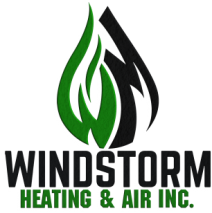
The Ultimate Guide to Choosing the Right HVAC System for Your Home
Assess Your Climate
The climate you live in will be the number one factor in choosing the right HVAC system. You need a system tailored for your region’s temperatures and weather patterns.
If you live in a predominately hot southern climate, you’ll want an AC-focused system with maximum cooling capacity. Heat pumps from brands like Carrier are a great energy-efficient choice for hot humid climates.
Cold northern climates need powerful heating systems like gas or oil furnaces from Goodman, potentially paired with electric heat pumps from Fujitsu for energy savings.
Homes in temperate climates benefit from HVAC systems with both heating and cooling capabilities like dual-fuel heat pumps from Rheem.
Consider an ENERGY STAR® certified HVAC system optimized for your climate zone’s conditions for optimal efficiency. See our article on The Impact of Climate Zones on HVAC System Selection for more details.
Determine the Right Size
It’s crucial to choose an HVAC system sized correctly for your home’s square footage. Oversized units will cycle on and off frequently, leading to uneven temperature control. Undersized systems won’t be able to cool or heat your home effectively.
A professional HVAC contractor can calculate your home’s heating and cooling needs and recommend the properly sized system. Rule of thumb: you need 20 BTUs (British Thermal Units) of cooling per square foot and between 25-35 BTUs of heating per square foot.
For a 2,000 square foot home, that’s around a 40,000 BTU furnace and a 4-ton AC unit. Make sure any HVAC unit you choose is within the right capacity range for your space.
Compare Efficiency Ratings
Today’s HVAC systems are available in a range of energy efficiencies, so it pays to compare ratings and choose the most efficient option within your budget. This will result in lower utility bills and environmental impact over your system’s lifespan.
For AC units, look for a high SEER (Seasonal Energy Efficiency Ratio) rating of 14 or above. The minimum is 13 SEER for new equipment.
With furnaces, seek out an AFUE (Annual Fuel Utilization Efficiency) rating over 90%. Minimum AFUE is 80% for new models.
Heat pumps should have HSPF (Heating Seasonal Performance Factor) of 8 or more. Higher is better.
Look for the ENERGY STAR® logo on efficient HVAC equipment. Rebates and tax credits may apply for choosing high-efficiency units. Check out our article on Energy-Efficient HVAC Tax Credits and Incentives for more information.
Determine the Fuel Source
Most HVAC systems run on either electricity, natural gas or propane. Assess the energy sources available in your area and home. Cost, efficiency, and availability will help determine the ideal fuel for heating and cooling.
Electric heat pumps can move heat rather than generate it for efficient cooling and warmth. Dual-fuel heat pumps combine electric heat pumps with propane or natural gas furnaces for versatility.
Gas furnaces heat with combustion and require gas lines connected to your home. Propane furnaces have a self-contained tank and offer an alternative when natural gas isn’t available.
Weigh the pros and cons of fuel options for your specific needs and home. Keep in mind, gas furnaces typically have lower operating costs than electric. See our Heat Pump vs. Furnace comparison for more details.
Understand the Cost
HVAC systems represent a major investment, so you want long-lasting value from your purchase. Focus on quality equipment with good warranties from reputable brands like Trane, Carrier or Lennox.
Factor in both equipment and installation costs. Advanced “smart” systems will be pricier. Also consider operating costs like energy efficiency. A more expensive high-efficiency system can pay for itself over time through lower utility bills.
A professional HVAC contractor can work with your budget to find the ideal system providing value for the investment. Don’t go just based on the lowest upfront cost. Lifetime costs are important.
Compare HVAC System Types
Once you’ve assessed the basics for your climate and home, it’s time to look at specific system types. The most common options include:
Gas Furnace
Reliable, cost-effective heating using natural gas or propane. Need an additional AC unit for cooling.
Heat Pump
Provides both heating and cooling from one dual-purpose unit. Ductless or central ducted options available.
Air Conditioner
Cools and dehumidifies your home’s air. Combine with gas or propane furnace for heating. See our article on 10 Signs Your Air Conditioner Needs a Checkup for maintenance tips.
Ductless Mini-Split
Separate indoor and outdoor units connected via pipes and wires. Allows for zoning and doesn’t require ductwork. Read our Ductless Mini-Split Systems overview.
Packaged Units
Combine heating, cooling, and sometimes ventilation into one cabinet unit placed outside your home.
Geothermal System
Uses underground temperatures for highly energy-efficient heating and cooling. Expensive to install but low operating costs. See Geothermal Heating and Cooling for more.
Hybrid Systems
Combine multiple technologies like a dual-fuel heat pump or an AC with integrated gas furnace.
Research which system types make the most sense for your climate, efficiency needs, and budget. Get quotes from HVAC companies to compare costs.
Additional Features to Consider
– Smart thermostat – For convenience and optimal efficiency through programmable scheduling and remote access via smartphone. See The Role of Thermostats in Energy Efficiency.
– Zoned system – Separate controls for different areas of your home to customize comfort. Requires additional dampers and controls. See Zoning Your HVAC System for more information.
– High-efficiency air filter – Traps more dust and allergens for better indoor air quality. MERV 13 or higher recommended. Requires occasional filter changes. Check out our Choosing the Right Air Filter guide.
– Humidifier or dehumidifier – For maintaining optimal humidity levels in your home. Useful feature for many climates. Can be integrated with HVAC equipment. See Humidity Control Tips.
– Ventilation – Some systems include dedicated fresh air ventilation to improve indoor air quality. This can also be added separately. Read about Why Indoor Air Quality Matters.
– WiFi connectivity and apps – For controlling your HVAC via smartphone and diagnoses of maintenance needs. Convenience feature. See Exploring Smart HVAC Technology.
Get Professional Guidance
Choosing a complete HVAC system is complex. For the best results, partner with reputable local HVAC professionals to analyze your home and recommend the ideal heating and cooling solutions based on your specific needs.
They’ll consider factors like size, layout, insulation, windows, and more to customize the perfect HVAC system for your home and family. Focus on contractors who prioritize energy efficiency, comfort, indoor air quality, and long-term value.
Investing in the right HVAC system for your home and climate will pay dividends for years through comfort, savings, and reliability. With smart research guided by HVAC experts, you can make an informed decision about this major home system investment.

